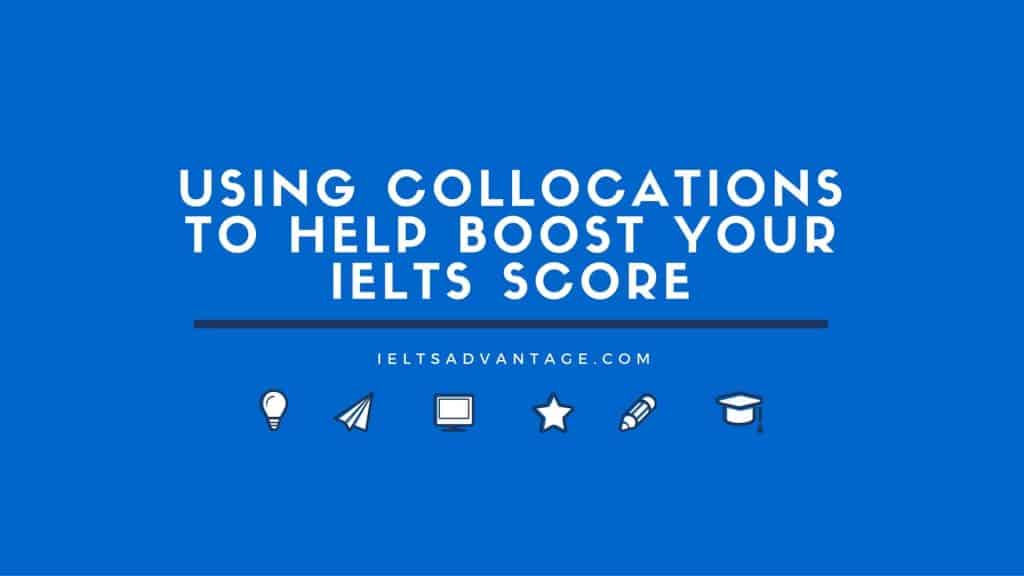The correct use of collocations is an essential part of improving your English level and boosting your IELTS score. Using collocations correctly allows you to write and speak more like a native speaker and they are also one of the things that examiners look out for when marking your tests.
Learning new words as part of a collocation is a much more effective way of improving our vocabulary than simply learning single words by themselves.
Collocations are two or more words that naturally go together. They sound ‘correct’ to a native speaker. Using other combinations that do not form natural collocations might sound ‘incorrect’.
Examples
We could describe a night out as ‘great fun’, but we would not describe it as ‘big fun’. Similarly, we could describe the rain as being ‘heavy’, but we would not say that it is ‘weighty’ or ‘big’ rain.
There are many different types of collocations that you should be aware of. Below are the main ones and some examples.
Please note that this is not a list of collocations that you should use in your test, just some examples to help you understand what collocations are.
Adverb + Adjective
It’s vitally important to learn collocations.
I’m terribly sorry to bother you.
The baby was fast asleep.
It would be utterly stupid not to learn collocations.
I’m completely satisfied with his explanation.
Note that the adverb can often be replaced with the simpler words ‘very’ or ‘really’. Try to avoid these and use a more advanced collocation, like the ones above.
Adjective + Noun
There’s been heavy rain all day in Ireland.
There’s a strong chance I’ll get a high score.
I’m under severe pressure to get the job finished this week.
It’s been a hard day at the office.
The patient was in excruciating pain when they arrived.
Noun + Noun
I experience a surge of anger when I saw what he’d done.
We gave her a round of applause after the speech.
I normally just drink a pint of beer when I go out.
Noun + Verb
A lion roars, they do not shout.
The children played as the snow began to fall.
The price of heating oil falls as temperatures rise.
Verb + Noun
Will someone please answer the phone?
Click on the link below to send me an email.
You can arrange an appointment with the doctor online.
How Can Collocations Improve My IELTS Score?
IELTS examiners will be listening out for effective use of collocations when you are doing your speaking test. They will also look for good use of them in your writing test. In short, appropriate and accurate use of them will help boost your score.
Does that mean that you should learn a long list of them? NO!
Instead, you should make collocations part of your vocabulary building process. When you learn a new word, you should find out which words it collocates with. A quick Google search will help you find all the main collocations easily.
You can then write down example sentences containing the collocations. This will help you remember the word more effectively, so you will be broadening your vocabulary and this will help you in all parts of the test.
Vocabulary Book
My recommendation would be to start a vocabulary book that contains all of the new words you learn. Beside each word you can list the meaning, but also collocations and things like synonyms and antonyms too. This will ensure that you will remember the word and use it correctly in the test.

